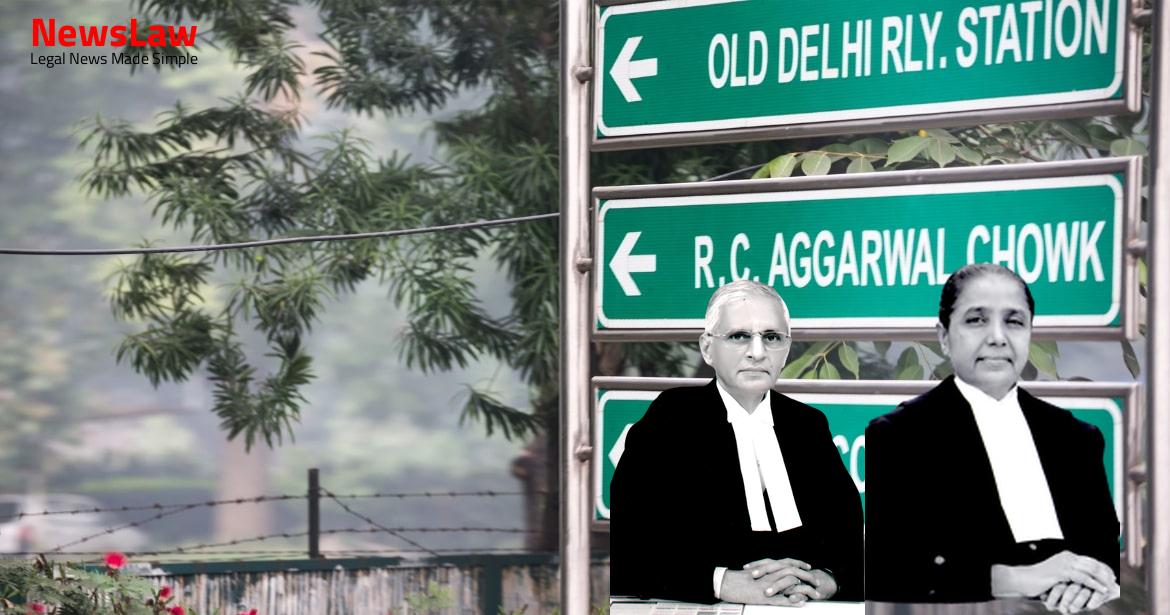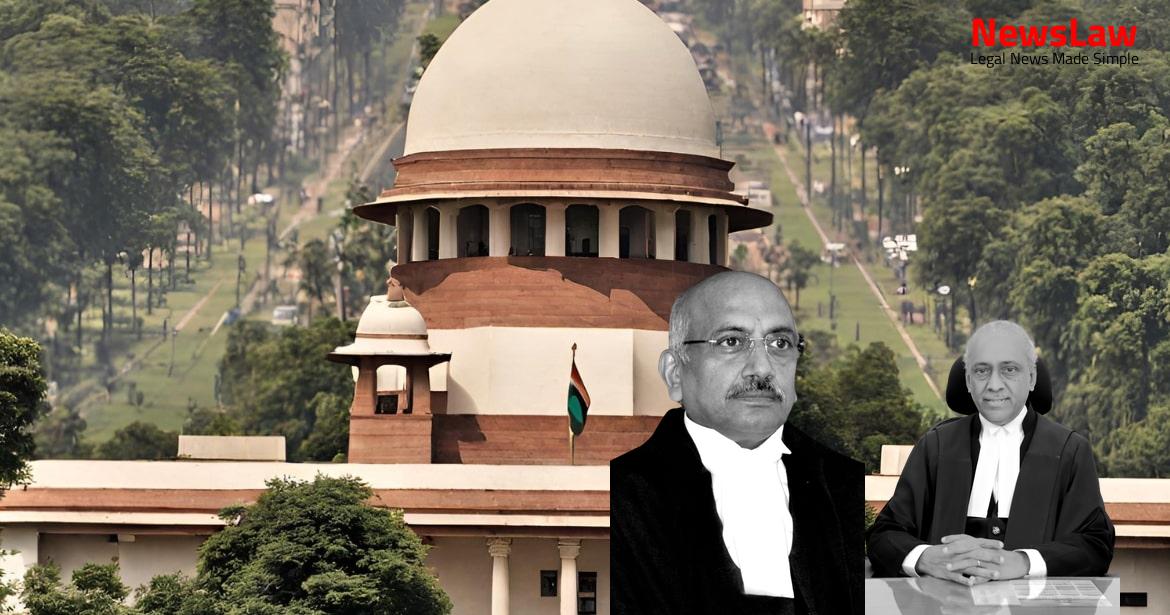The case of Kottayam Bank vs. Insurance Company has seen a crucial legal development where the rights of farmers were upheld against the insurance company. In a dispute over the loss of agricultural produce in a fire, the National Commission ruled in favor of the farmers, ensuring their claims were recognized. The judgment holds significance in protecting consumer rights and establishing accountability within insurance policies.
Facts
- The fire at the cold store was deemed to be accidental as per the policy terms, making the insurance company liable for the value of the agricultural produce lost in the fire.
- The State Commission found that the fire resulted from an electrical short circuit, not human intervention or use of kerosene.
- Tripartite agreements between farmers, the Bank, and the cold store mandated the cold store to insure the goods hypothecated with the Bank.
- Claims were filed by farmers against the cold store, Bank, and insurance company for the loss of agricultural produce due to the fire.
- The Bank supported the farmers’ claims, intending for the amount to be used to offset the loans advanced to the farmers.
- The insurance company’s denial of claims was based on grounds like arson involvement and lack of privity of contract with the farmers.
- Despite challenges to the genuineness of the tripartite agreement, the claims against the cold store and insurance company were upheld.
- The cold store’s building and entire stock were destroyed in the fire, impacting multiple farmers who had stored various crops in the cold store.
- Overall, the judgment supported the farmers’ claims due to the accidental nature of the fire and the terms of the tripartite agreements.
- The insurance company was aware that the goods were held in trust.
- No evidence was presented to prove the fire was not accidental or started by the cold store owner.
- Appeals were filed by the insurance company, farmers, cold store, and the Bank.
- Farmers’ appeal to be paid the value of goods as on the date of fire was rejected as they failed to prove the characteristics of the produce stored.
- National Commission affirmed that the farmers are consumers.
- The Bank’s appeal resulted in the insurance company remitting the principal loan amount to the Bank but giving interest and damages to the farmers.
- The interest rate was reduced from 14% to 12% per annum by the National Commission.
- No deficiency of service was found on part of the Bank.
Also Read: Interpretation of Pre-deposit Requirement under SARFAESI Act
Arguments
- Shri P.P. Malhotra representing the insurance company argued that the claim for damage to the cold store’s building, plants, and machinery was repudiated on 16.09.2015.
- Referring to the bank clause, it was contended that the National Commission’s direction to pay interest to the farmers goes against the Agreed Bank Clause, which mandates payment to the Bank until the Bank’s outstanding amounts are covered.
- Citing the case of M. C. Chacko v. The State Bank of Travancore, Trivandrum, where the appellant had an overdraft account with the Bank, Shri Malhotra supported his argument.
- The insurance company argued that there was deficiency in service by the Bank and alleged connivance with the farmers.
- Both the State Commission and the National Commission concluded that the fire was accidental due to a short circuit.
- Arguments were made for invoking Article 142 for justice to the farmers.
- The National Commission’s role was debated regarding legal considerations vs. equity.
- The insurance company claimed the tripartite agreement was irrelevant to them since they were not a signatory.
- Strict construction of the insurance contract was emphasized by the insurance company.
- Allegations of orchestrated complaints via one counsel by the cold store were raised.
- The insurance company contested liability based on exclusion clauses in the policy.
- Arguments were made for the cold store’s role as a bailee of goods for consideration.
- Dispute over whether the farmers could claim insurance benefit and the applicability of the bank clause.
- Failure to disclose important facts to the insurance company was cited as grounds for voiding the policy.
- Misrepresentation or misdescription in the policy making it voidable was discussed.
- The possession of farm produce held by the cold store was analyzed in the context of contractual bailment.
- Non-disclosure of critical facts by the insured was used to argue against the insurance company’s liability.
- No need seen for invoking Article 142 as farmers would still receive some amount after paying off bank dues.
- Various issues raised by the insurance company, including disputing the accidental nature of the fire.
Also Read: Infinity Infotech Parks Ltd. v. Actual Names: Electricity Restoration Order
Analysis
- The tripartite agreement between the Bank, the cold store, and the farmers hypothecated the stock of the farmers as security with the Bank, requiring insurance to safeguard the Bank’s interest.
- The Bank should have ensured that the tripartite agreement was also given to the insurance company to safeguard all parties’ interests.
- The insurance company’s assumption that it had insured the goods of the cold store itself lacked factual basis.
- The presence of hydrocarbons in the fire debris did not conclusively indicate the use of kerosene oil to ignite the fire.
- The insurance policy was in force for three years, covering the period when the fire occurred.
- The Bank’s failure to disclose the tripartite agreement or the owners’ names did not render the policy void or voidable.
- The insurance company is liable to pay for the value of the goods as of the date of the fire, as per the terms of the policy.
- The insurance company’s contention that the fire was caused by kerosene and thus not covered is rejected.
- The policy should be interpreted broadly in favor of the insured, and exclusions read narrowly in favor of coverage.
- The insurance company’s negligence in verifying the stock value and ownership cannot now be used to avoid liability.
- Literal rule of interpretation means that what is said is meant and what is meant is said.
- In construing terms of an insurance contract, the words used are of paramount importance and no addition, deletion, or substitution is allowed.
- The provisions of the policy must be interpreted to fulfill the reasonable expectations of all parties involved.
- The literal rule of interpretation is not only used by judges and lawyers but also in everyday life.
- Insurance policies have to be strictly construed to determine the insurer’s liability.
- Not following the literal rule of interpretation would make social life impossible.
- Terms of the policy govern the contract between parties, not definitions from other laws.
- When entering into an insurance contract, parties are presumed to have done so with full awareness and cannot rely on definitions from other laws.
- In the case of Kottayam Bank, it was held that they were neither a party to the contract nor a beneficiary.
- The definition of consumer under the Act is extensive, including not only the person hiring or availing services but also beneficiaries of such services.
- Privity of contract is not necessary between the insurance company and claimants under the Act.
- The insurance policy contained an Agreed Bank Clause indicating payment to the bank for the interests of other parties insured.
- The insurance company was responsible for verifying the owner of the goods as per the policy clauses.
- The argument regarding goods held in trust by the cold store not falling under Exclusion Clause 5 was dismissed.
- The Bank is entitled to recover the principal amount along with 12% simple interest from the farmers
- The insurance company is liable to pay the value of goods as per warehouse receipts with 12% interest from the date of fire
- The dues of the Bank till the date of fire must be determined first, with excess being payable to the farmer along with interest
- Using the example of Thippa Reddy, the value of goods as per warehouse receipts is considered the value on the date of fire
Also Read: Deputation Allowance in NDRF Personnel Case
Decision
- State Commission to determine the amount payable to farmers by adjusting the amount due to the Bank as of 14.01.2014.
- Insurance company to deposit the payable amount to farmers with the State Commission by 30.04.2020.
- Canara Bank to provide certified statements of accounts to the Karnataka State Consumer Disputes Redressal Commission showing loan details and interest calculations.
- Interest calculated at 12% per annum on loans from 30.08.2011 to 14.01.2014, amounting to approximately Rs.2,84,712.
- If any payments made by the farmer towards the loan, those amounts should be adjusted accordingly.
- Insurance company liable to pay interest on the loan amount from 14.01.2014 onward at 12% per annum, along with Rs.7,17,288.
- Insurance company to pay farmers the assessed value of goods stored in Cold Store along with 12% interest from the date of fire till payment.
- All exercises to be completed by 31.03.2020 with necessary statements filed before the State Commission by 02.03.2020.
- Insurance company to pay the loan amount with 12% interest directly to the Bank from the date of loan advancement to date of payment.
Case Title: CANARA BANK Vs. M/S UNITED INDIA INSURANCE CO. LTD (2020 INSC 140)
Case Number: C.A. No.-001042-001042 / 2020



